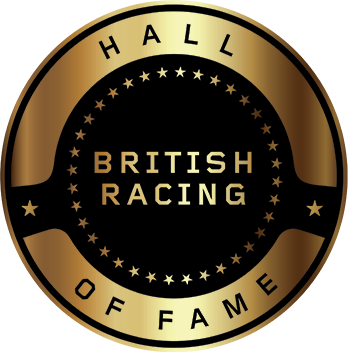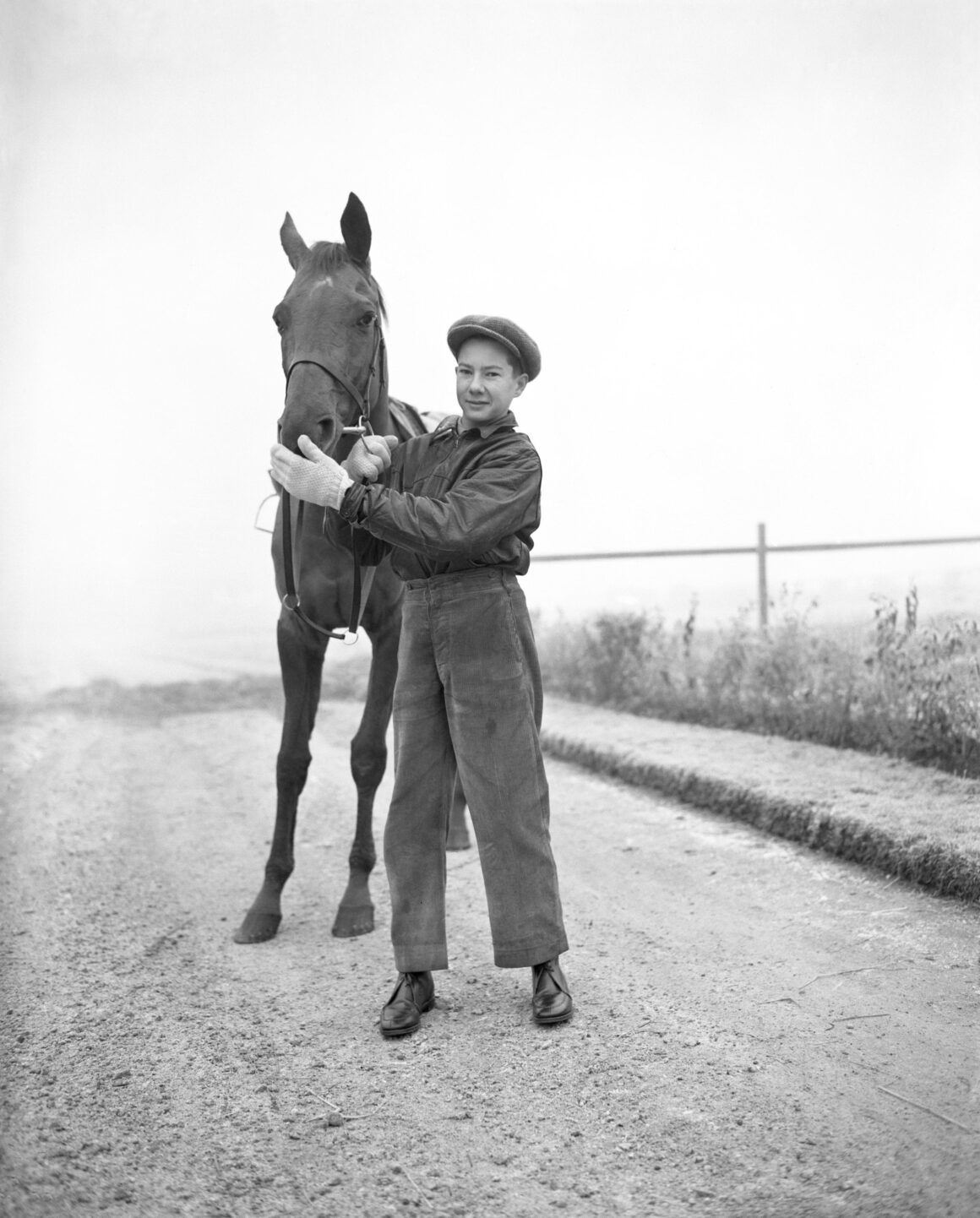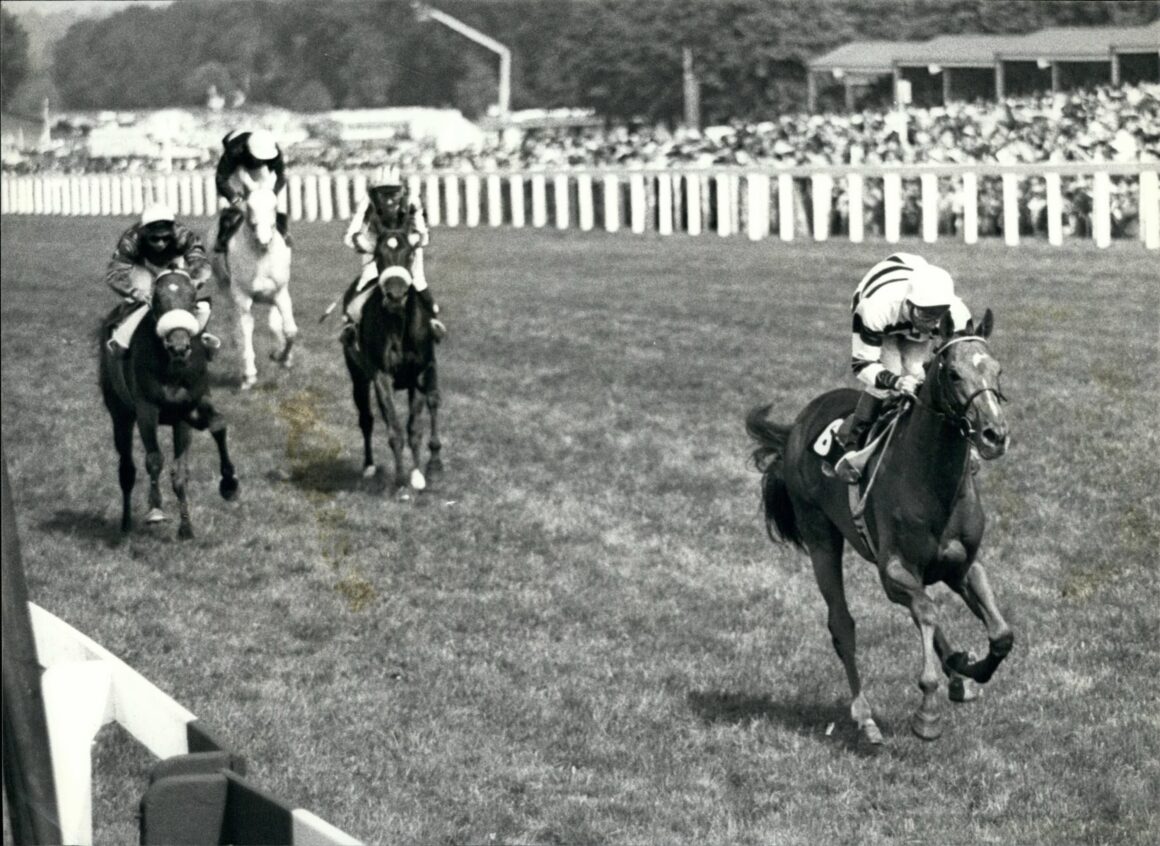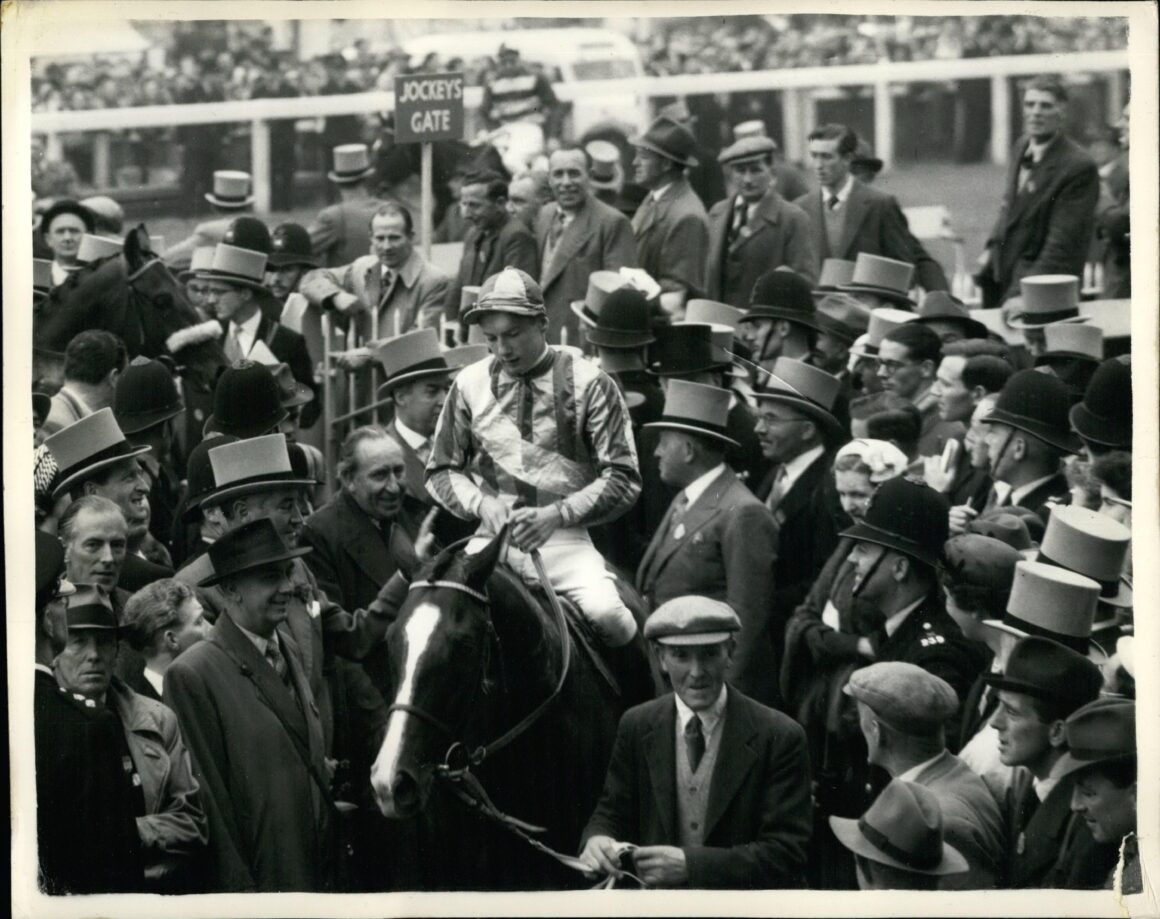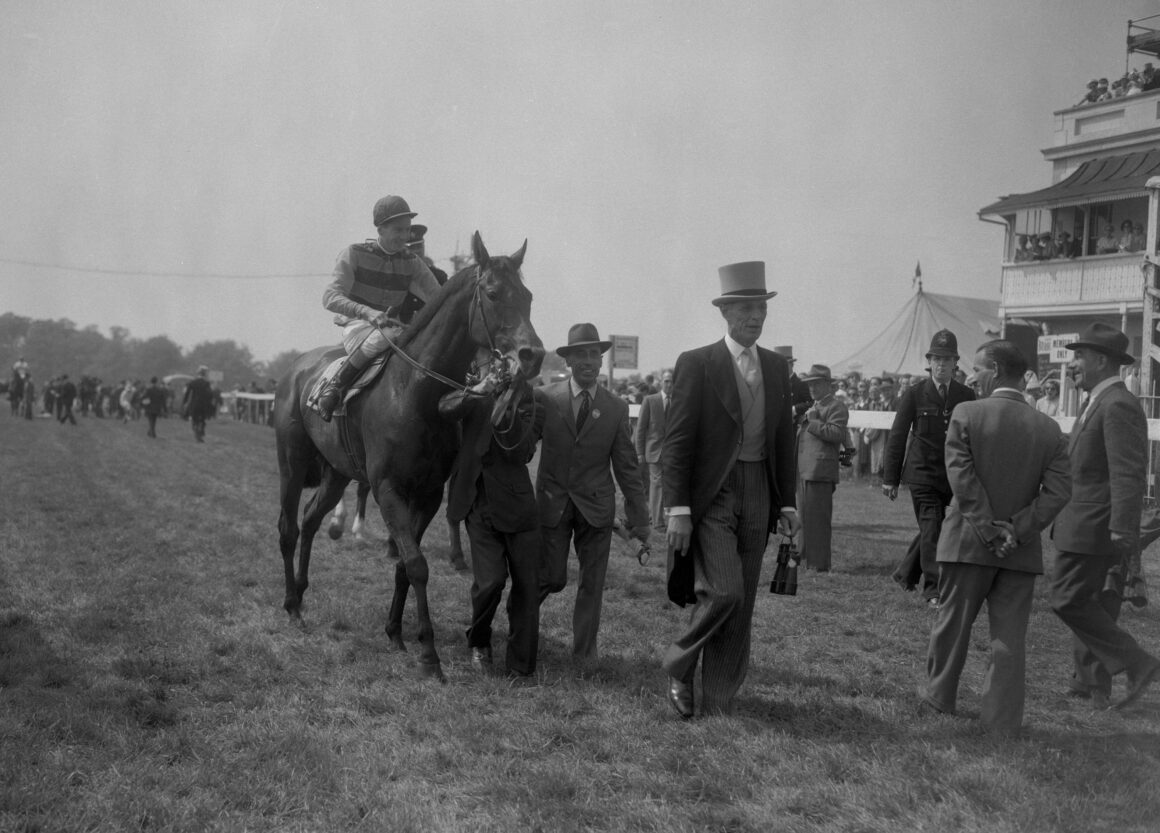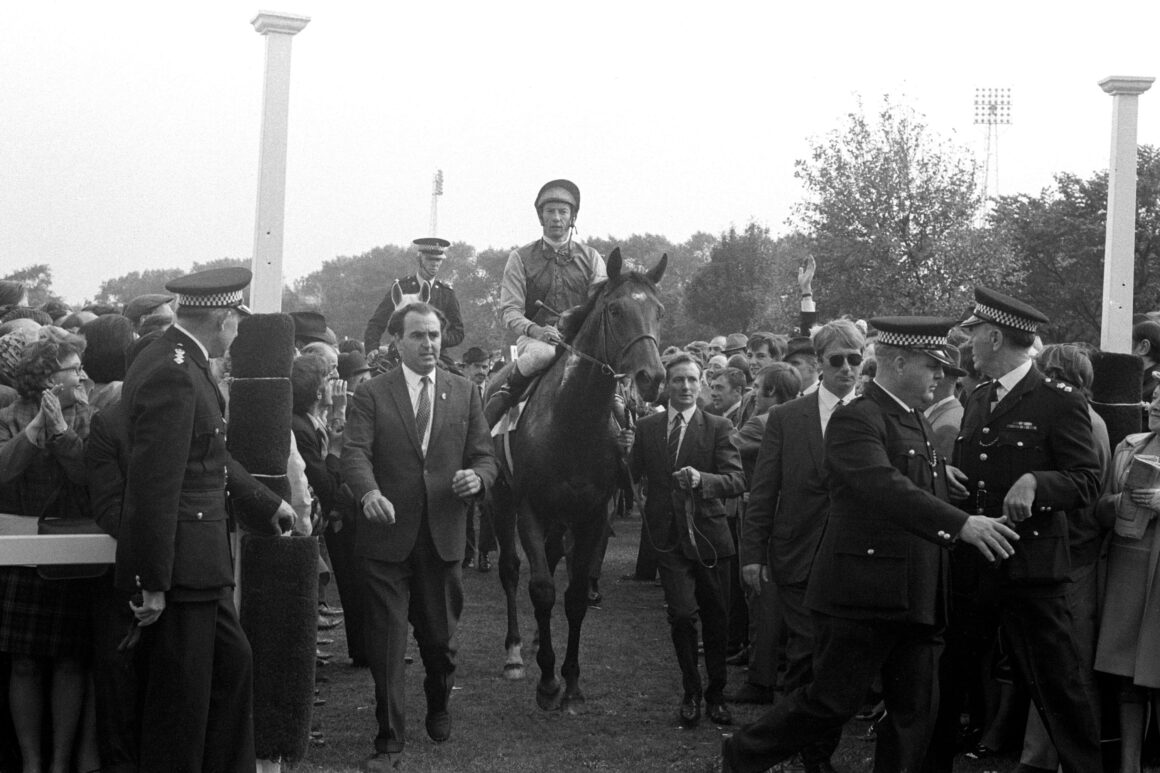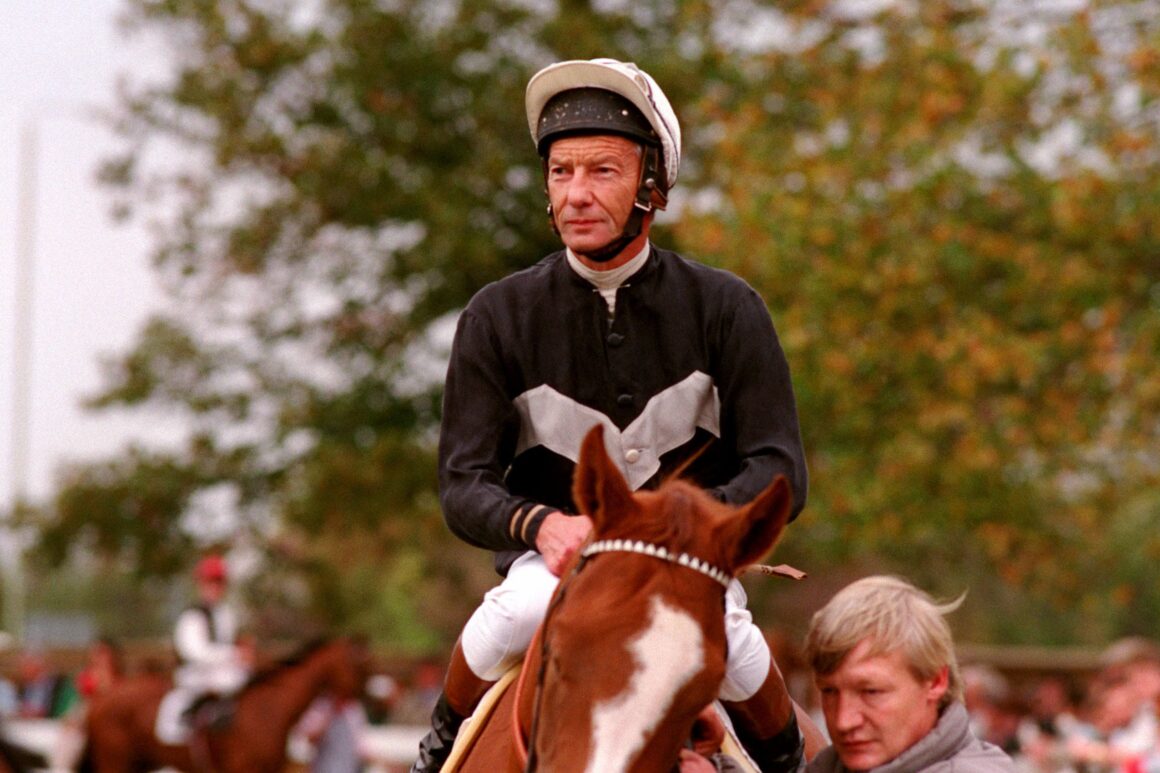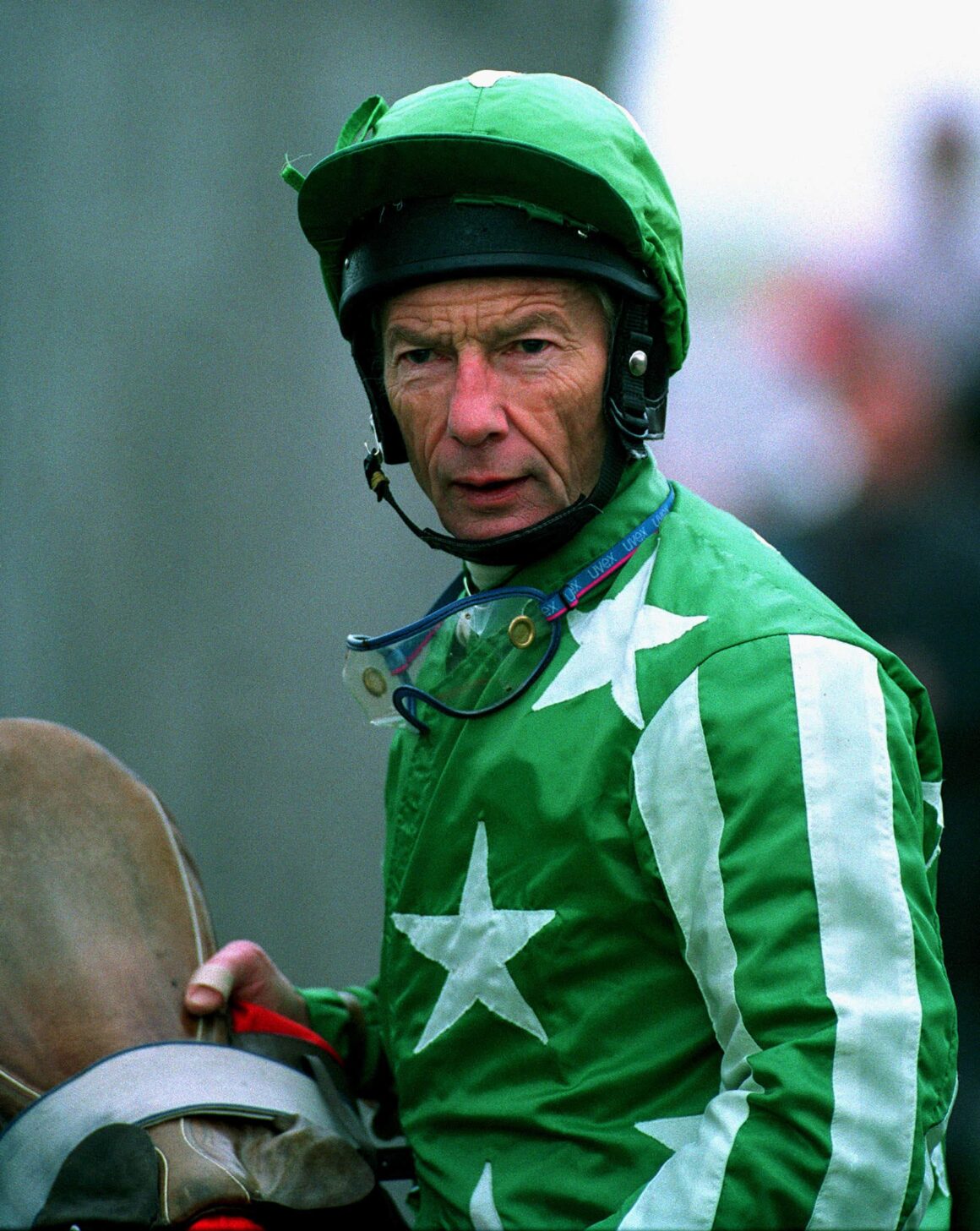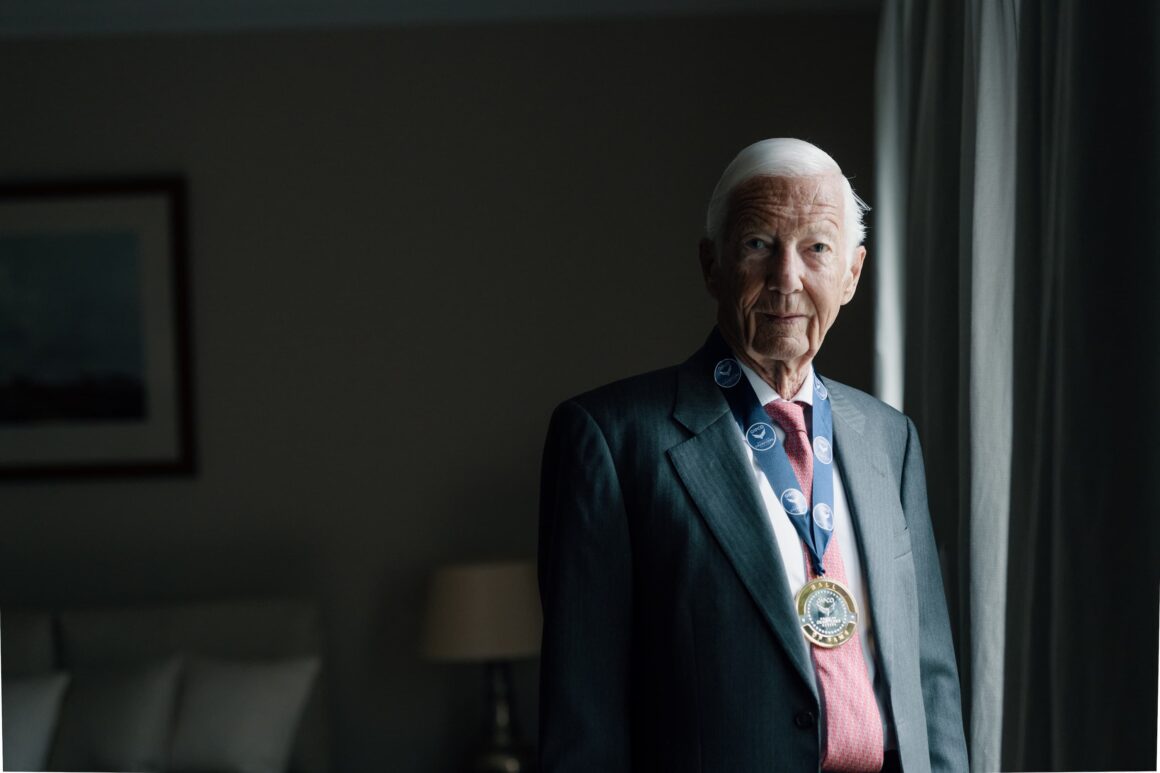Lester Piggott
Lester Piggott stood head and shoulders above his fellow jockeys, literally and metaphorically. His genius in the saddle has rarely, if ever, been matched and his decorated career included a comeback that defied all odds.
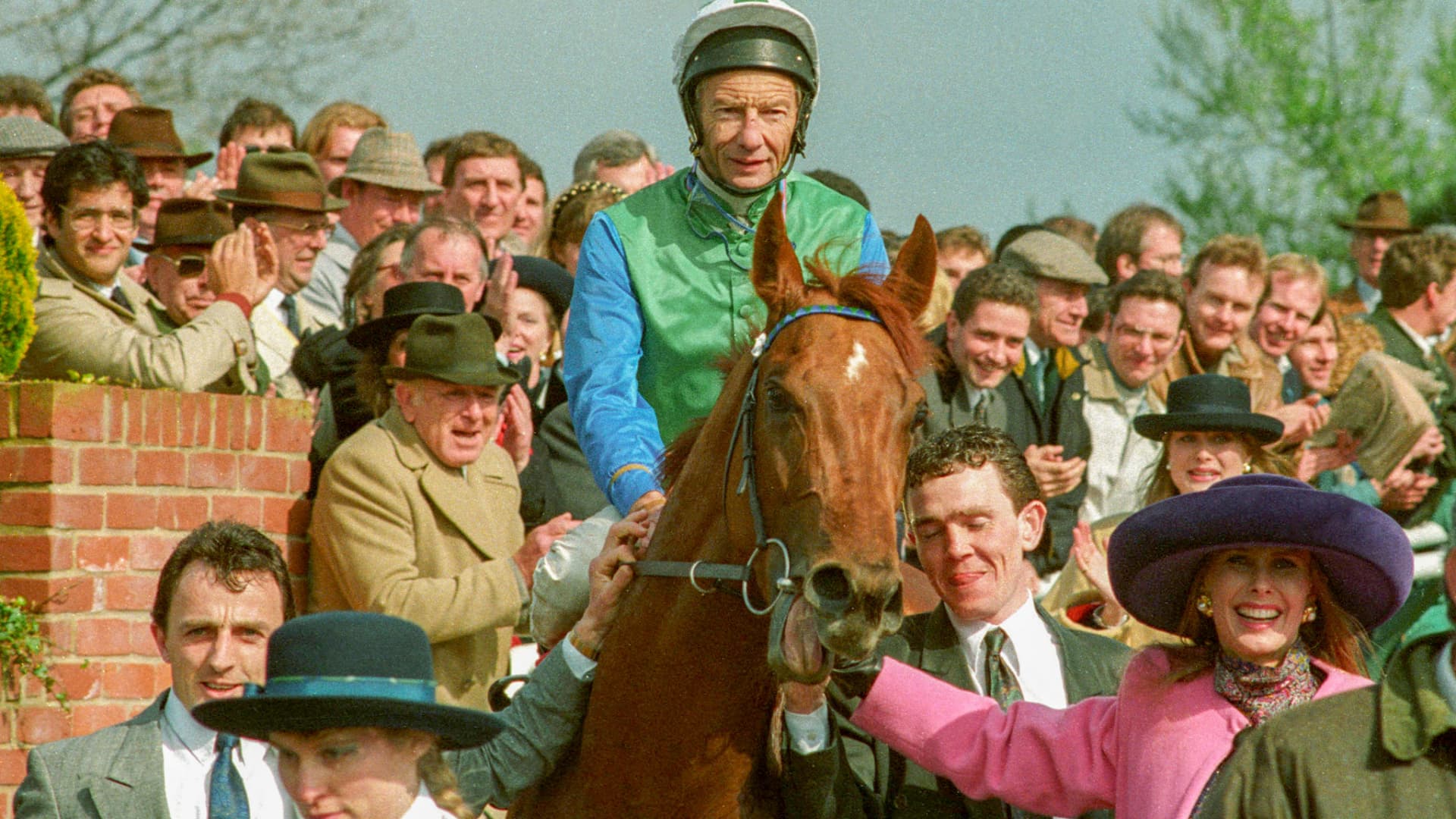
Lester Piggott wins his 30th and final British Classic aboard Rodrigo de Triano in a career spanning six decades.
Piggott began riding racehorses when he was a 10-year-old boy, with his final win in his 60th year. In the intervening five decades, he established himself as possibly the greatest jockey there has ever been.
He won 4,493 races; was champion jockey 11 times; prevailed in a record nine Derbys among 30 Classics triumphs; and enjoyed 116 Royal Ascot winners. He rode countless champions, chief among them perhaps being the Vincent O’Brien-trained Nijinsky, who won the Triple Crown (The 2000 Guineas, Derby and St Leger) in 1970. No horse had achieved this for 35 years, and none have achieved this feat since.
Being stable jockey to some of the greats, such as Noel Murless, Vincent O’ Brien and Henry Cecil was a help, but it was little wonder they craved his services. A brilliant tactician, Piggott was equally adept at winning races from the front or behind.
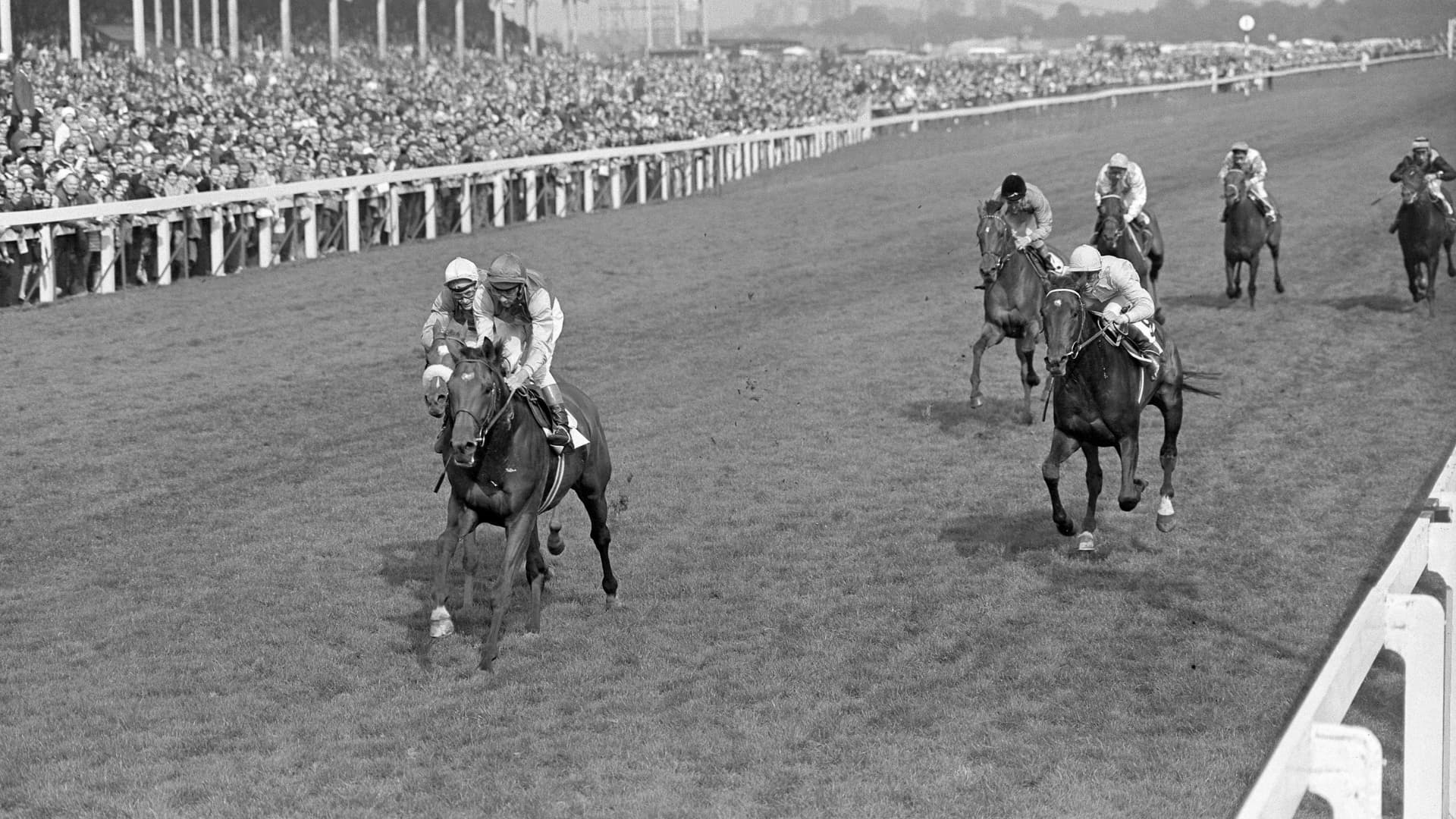
Lester Piggott and Nijinsky complete the Triple Crown in 1970 at Doncaster Racecourse. The feat hasn’t been achieved since.
There were few finer, or more distinctive, sights in sport than watching the upright Piggott glide home on a thoroughbred when sitting motionless. But, there were also few stronger or more driven than him in a tight finish, such as when he won the 1972 Derby by a short-head on Roberto.
Unusually tall for a Flat jockey at 5ft 7 1/2in, the Long Fellow, as he was nicknamed, would routinely ride about 2st below his natural body weight. Many would have given up with this constant struggle but Piggott refused to yield; his hunger seemingly sustained by a never-ending stream of winners.
Born into a family immersed in centuries of racing, his career path was set from the day he was born on November 5, 1935. His father, Keith, was a successful jump jockey and champion trainer, while his grandfather, Ernie, rode three Grand National winners. His great-grandfather, John Rickaby, was responsible for training Wild Dayrell, the 1855 Derby winner.
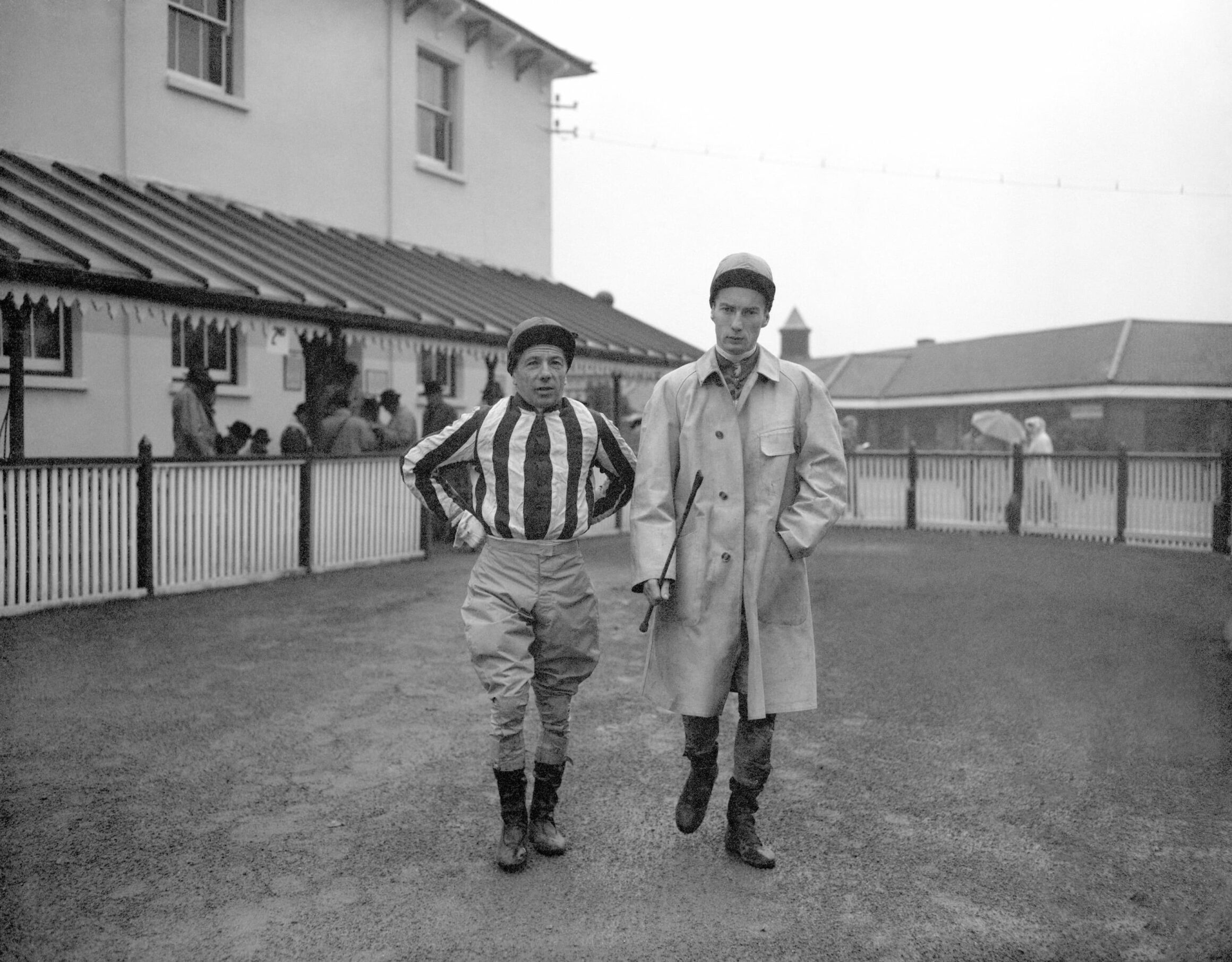
Two Champions. Piggott (R) wins his first of 11 Champion Jockey titles in 1960, taking the title from five-time Champion, Doug Smith (L).
His first win, aged 12, was aboard The Chase at Haydock Park in 1948. The delighted young rider was just 4ft 6in and weighed 5st 4lb. By the time he won his first Derby on 33/1 chance Never Say Die, six years later, he was more than a foot taller and 8st 7lb. His perpetual fight against the scales had begun.
Piggott would go on to win The Derby, Britain’s premier Classic at Epsom, on eight more occasions, with Crepello (1957), St Paddy (1960), Sir Ivor (1968), Nijinsky (1970), Roberto (1972), Empery (1976), The Minstrel (1977) and Teenoso (1983). He was also runner-up four times, with the last of his 36 rides in the greatest Flat race in the world being in 1994.
No other jockey has won The Derby more than six times, with no current rider having won it more than twice. He also won the Irish equivalent five times, plus other versions in France, Germany, Italy, Sweden, Singapore and even Slovakia.
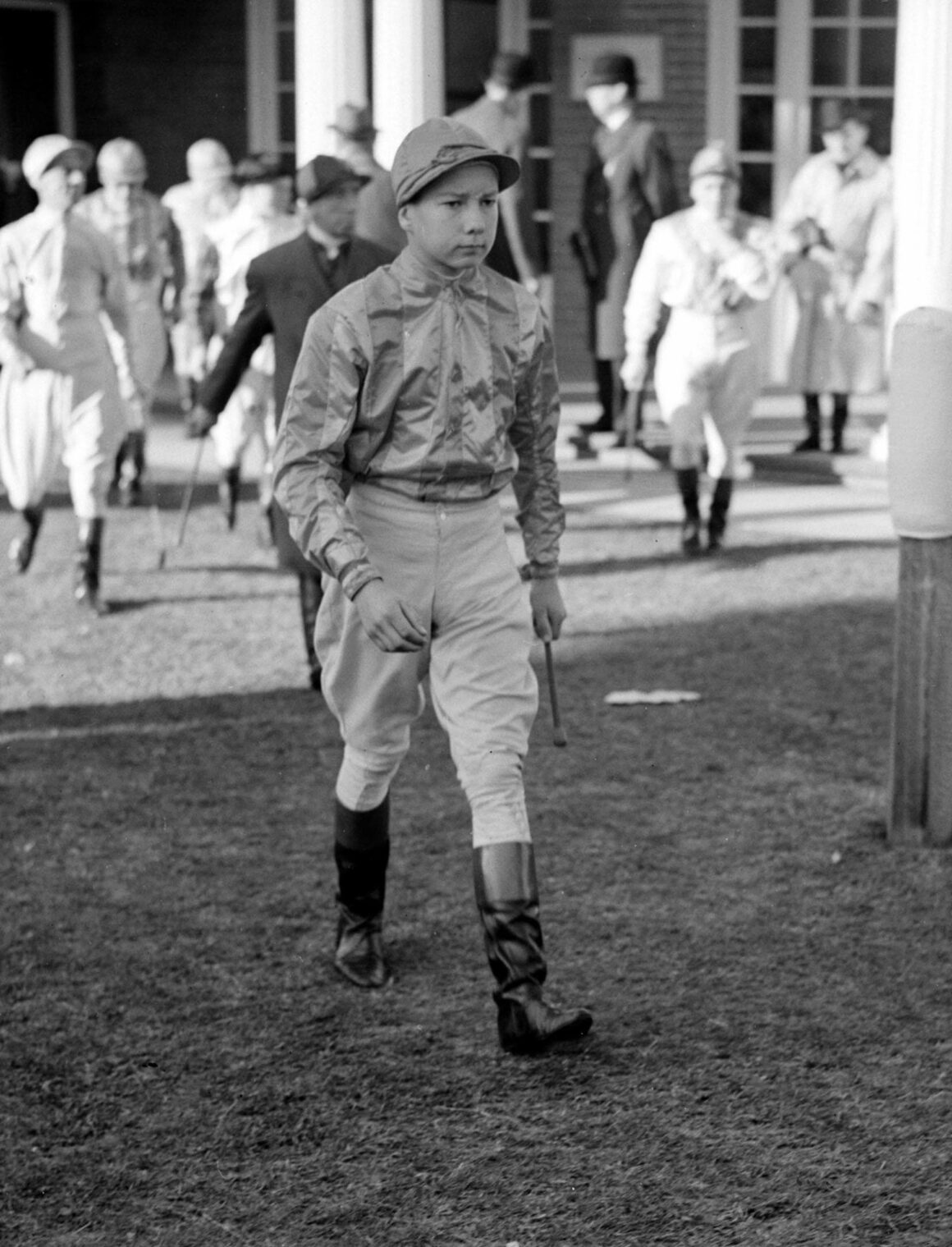
Lester Piggott heads out aged 14 to ride in the Cambridgeshire at Newmarket.
Piggott’s other 21 British Classic victories consisted of eight St Leger wins; six Oaks wins; five 2,000 Guineas victories and two 1,000 Guineas. He won the Gold Cup at Royal Ascot on 11 occasions, and France’s biggest prize, the Prix de l’Arc de Triomphe, three times – including twice on Alleged (1977-78).
He was champion jockey for the first time in 1960, gaining the last of his 11 titles in 1982. Between 1964-1971, he was crowned champion every single year.
Piggott retired at the end of the 1985 Flat season to become a trainer, but his new career ended when he was convicted of tax fraud.
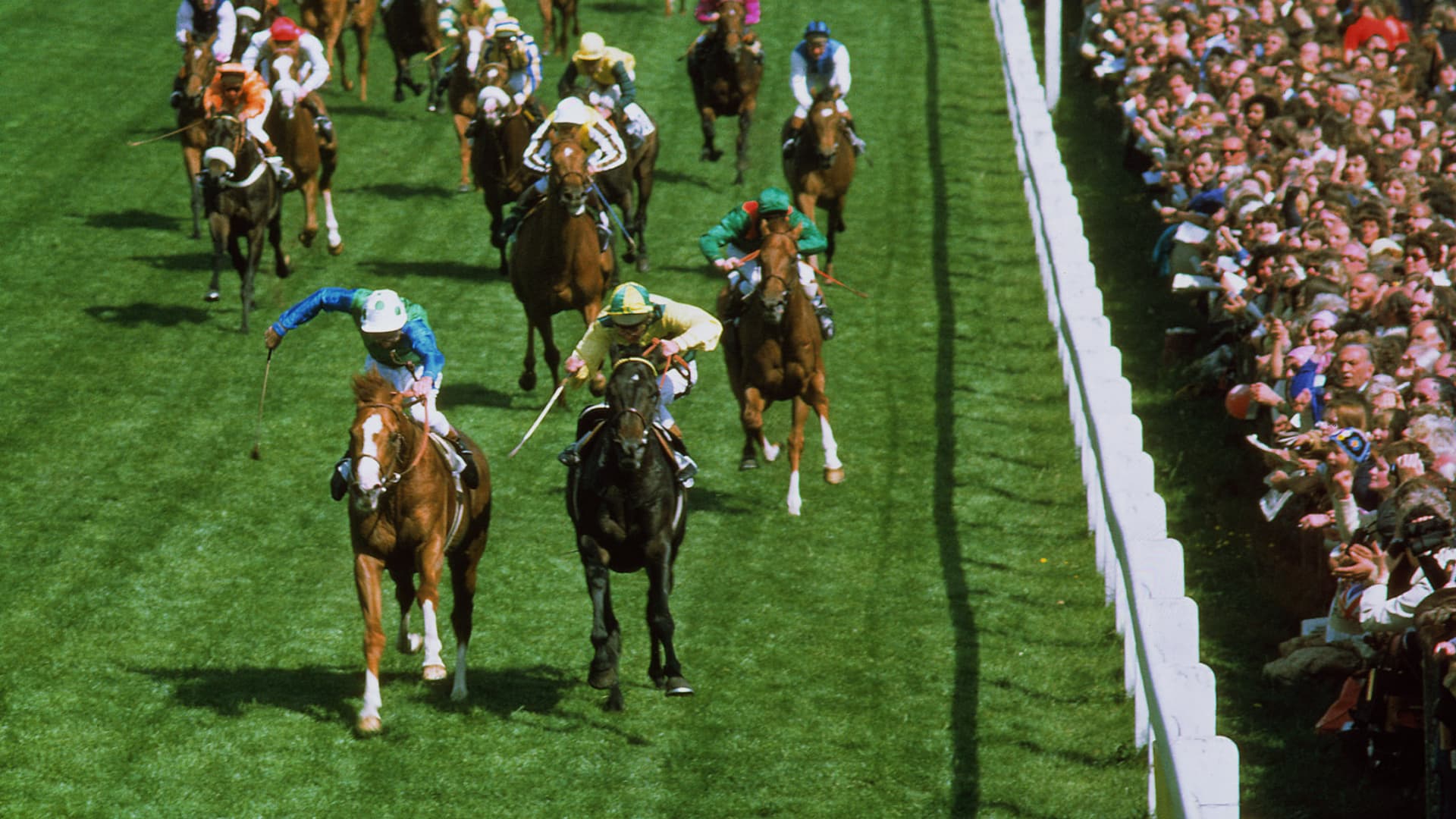
Lester Piggott wins his eighth of a record nine Derby’s aboard The Minstrel, holding off Willie Carson on Hot Grove.
Upon his return to the sport, he resumed riding and, amazingly, less than a fortnight later travelled to America to win the Breeders’ Cup Mile at Belmont Park on Royal Academy for old ally O’Brien. He rode on in Britain for another four years before retiring for a second and final time.
The Lesters, inaugurated by the Professional Jockeys Association in 1990, annually recognise the achievements of jockeys, and in 2019 a life-size bronze statue of Lester Piggott was unveiled at Newmarket’s Rowley Mile Racecourse – one of nine effigies to commemorate each of his Derby winners.
Racegoers quickly surrounded him to obtain an autograph that autumn afternoon. Lester Piggott remains as revered now as when making The Derby almost his own, with his place in the QIPCO British Champions Series Hall of Fame a foregone conclusion.
Lester Piggott is inducted into the QIPCO British Champions Series Hall of Fame.
Career Highlights
Other Accolades
11 x Champion Jockey
Winning-most jockey of the Derby

